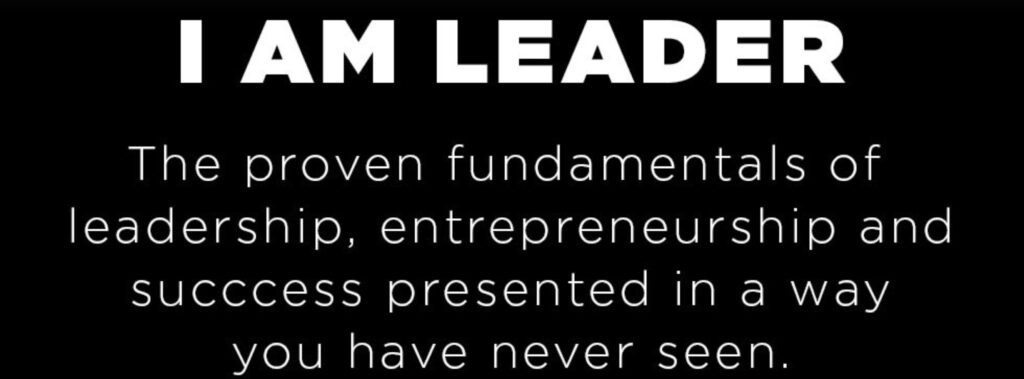Chris:
Today we attack the backlog of questions from the audience. Mia addresses the five kinds of customers you meet on the service drive. Christian takes a honest stab at fixing a workplace dilemma, and I find a new ringtone. I’m Chris Collins. This is Christian Lafferty. And that’s what’s coming up today on service drive revolution.
Christian:
Yeah. So this is an Omar to the first launch. Didn’t explain what homage means. That means it’s a tribute of sorts. I don’t like when you questioned the words that I use, because sometimes big words, it’s a big community. College word really is a couple of years at community college. So your
Chris:
Shirt is an Omar
Christian:
To the first law of leadership.
Chris:
Oh, the 17 laws of leadership,
Christian:
The first of 17 laws of leadership and possibly the most important
Chris:
W we just added the 17 laws of leadership to our online training, to our on-demand. I have to say it’s probably my best work ever. I’d agree. It’s I belabored, I gave a piece of my soul to that tortured myself. Yeah. You would’ve, you would’ve thought I was, uh, having a baby or something.
Christian:
Yeah. You were definitely into the character of it. Like it was a, it was a lot of work
Chris:
Ever since then. I’ve been walking around the office, just randomly killing people. Cause isn’t one of the laws.
Christian:
Yeah. Murder line murder line, for sure.
Chris:
There was, uh, but the first law of the 17 laws ends up being the most important law hands down and they are in order of importance. Agreed. And you would think that was the hard part of recording them as you would think. Well, once you’re past the first five, if they’re the most important, like what what’s great about, you know,
Christian:
Six, 14. Yeah. Like,
Chris:
But it ends up. It’s pretty, pretty good. Yeah. The most important ones early, the most entertaining ones later, maybe.
Christian:
Yeah. I would say that the first five are really heavy. Like there, you have to get your mind right. With the first five and then you can really appreciate.
Chris:
Yeah. It was very aware when I was creating it that the time spent on the later laws needed to come down, like it had to be punchier, snappy and kinda end on a, you know, on a
Christian:
Boom boom, boom, boom. Yeah. It’ll change the way that you like to Keith Moon drum solo. Do you know Keith Moon was yes. From the who? Oh wow.
Chris:
That’s
Christian:
World famous drinker. In addition to phenomenal. Anyways, law, number one,
Chris:
Basically. Uh, I control the weather. It means God. I tell you that I laid in Maslow’s hierarchy of needs over that chart. You did. It’s crazy. Right. It’s pretty awesome. I, yeah, I didn’t make that connection until you pointed it out. I was like, Oh yeah, that, uh, that’s pretty cool. Um, you know, our friend Mia, the Tik TOK star I’m well aware of what is, what is her name on Tik TOK? The what? Chaotic feminist chaotic feminist. We, we had her on, we interviewed her and, um, I personally, I think she’s great. I think she’s hilarious. I wish that I knew how to do Tik TOK videos like that. Yeah, she’s good. She’s really good. We’ve asked her to contribute to the show and she made a video for us, which I think is hilarious that it’s great. And she came up with the five kinds of customers you meet on the service drive. So here is Mia with the five kinds of customers you meet on the service drive.
Mia:
Hey guys, it’s chaotic feminist. And this is five kinds of customers that you meet on the service drive the first one and probably most common, which is everybody’s favorite is the CEO of the ever since club. If you don’t know what that is, let me clarify for you. The CEO of the ever since club is somebody who is going to assume that anything wrong that happens with their car after a recent repair is obviously the fault of the technician that recently worked on their car. Even if it logically doesn’t make any sense. For example, hi, I came in last week and you guys did my rear brakes and now my front wipers aren’t working. Hi, ever since you guys did my oil change, my tires are out of balance. You get the gist. I’m not saying that certain issues can’t be caused by a recent visit to the dealership or to an independent shop, but maybe use your brain a little bit first before just assuming that the technician broke something.
Mia:
If you really are concerned that the recent repair or maintenance that you had done could have caused an issue, this is how you should handle it in the future. Hi, I was in recently to have my brakes done and now my front windshield wipers aren’t working. Is there a time that I could come in to have somebody take a look at it, to see if it’s related at all? I’m a genius. The next customer is the, everything is under warranty. So this demographic is specifically customers that have a card that is anywhere from zero to three years old. So it’s most likely still under the bumper to bumper warranty or powertrain warranty. And because of this, they think that anything that goes wrong with their car should be covered under the manufacturer warranty or example, Oh, my electronic power steering wires were chewed through by a rat.
Mia:
Well, it should be under warranty, right? Oh, you’re saying that the giant rock that I ran over on the highway damage to the undercarriage of my car, that should be under warranty. My car’s only a year old. Oh, I ran my car out of oil and blew up the engine. That should be under warranty, right? Alignments are under warranty, right? None of these fall under the warranty, none of them manufacturer warranties do just that they cover manufactured defects so that doesn’t include road damage, rodent damage or maintenance. If you break something on your car, that is your responsibility, not the manufacturer. Next. We have my absolute least favorite customer of all time. This is the elusive. I know more about cars than you do customer. Now I’m not going to sit here and pretend that this only happens to me, or it only happens to women because I’m sure that male advisors deal with it too.
Mia:
But I can promise you that it happens to me a lot more often because a lot of times men will come into the dealership and see a woman and be like, yeah, she doesn’t know anything about cars. And so, no matter what I tell them, they don’t believe a word out of my mouth. So they’re either going to come back with a, no, I know more about cars than you do bull crap, or they’re going to have somebody else verify what I’m saying. Next we have with the foot Tapper. This could mean it literally or figuratively. The foot Tapper is a customer that literally will stand in front of you and tap their foot until their car and stoned because they’re super impatient. Or this can include customers that want to call into the service drive once an hour to check up on the status of their car because they don’t trust the dealership or the shop to get the work done in a timely manner.
Mia:
It’s pretty much the equivalent of your kids sitting in the backseat going, no, no, no. I think you get the point and last but not least my favorite customer of all time, the red and beautiful godsend, this customer does not happen often. This is a rare kind of person who comes in and drops the car off. And he’s super relaxed and super chill. And doesn’t have insanely ridiculous expectations of the repairs being done in their car. They’re the ones that are really laid back and let you do your job in the time that you need to do with it. They don’t constantly nag you about status updates or anything like that. And they just let you do your job, which is kind of crazy. These are also the people that don’t question your skills. They don’t come in and want to argue with you about your knowledge. They’re the ones that just understand that my job is hard and they’re just going to let me do my thing. And trust me, that’s the biggest thing they trust me. And they trust the advisors that they’re working with. All right, guys, if you work in the automotive industry and you can relate to this video, I hope that you enjoyed it. And that is all for today.
Chris:
That’s a pretty good list. You also need to watch what MI is doing. Cause she has hundreds of thousands of followers on there. And as a manager, bleeder, whatever you need to understand marketing and understand that even though Tik TOK might not be your thing, it is a thing. And it’s very powerful and pay attention. Don’t just judge it, pay attention to why it works. It’s short, it’s concise, it’s punchy. And she’s got like 11 million views. Yeah, it’s crazy. Yeah. She’s got it figured out for sure. But that was a good list. I, I love the ever since customer personally, like we’ve all met the ever since customer love that one. That’s great. So today let’s Le let, we’re just going to do questions and then see where that goes. But we had a bunch of questions backlogged and we feel bad not getting to them.
Chris:
Um, understand the, understand the number is eight three three three, ask SDR that’s eight three, three, three. Ask SDR. If you have a question and we play it on the show, we will send you a swag bag, SDR t-shirt coffee, mug, fun stuff like that. Maybe we’ll throw in Christians t-shirt today. Maybe can we do that? Can we repurpose them to our favorite question? Or we can save these t-shirts. So I have every one of them and I’ve actually, we’ve sent out a couple of them. You have the parts sold. The parts sold is very popular. Parts. Hold is the most requested t-shirt that we’ve got, we could have sold those on our website. Do the Carnegie shirts didn’t do so well, but I don’t think most of our audience even knows and Connie, no, but I thought they were probably think it’s Kim Kardashians husband. Yeah, exactly. Or maybe at this point they might not even know who Kim credit let’s go to question number. Oops.
Question:
I started out at a dealership. I’ve looked into the automotive aftermarket for parts and I was there for 15 years before they moved me into sales. Um, I have worked a lot with RLL ATI shop, fix Academy and derived, you know, as well as quite a bit of a world pack, uh, WPI training on there as well. And I’ve always been a big follower of your system on there. Uh, so I have a question for you and hopefully you can help me out with this. I’ve dealt with quite a few shops and I actually work with about 150 shops per month. Um, one of my big things because, um, the company I work for is the most expensive as far as the automotive aftermarket is that I rebuilt the systems that we have in order to be able to deliver faster, provide better, quicker service for our shops and over to help with their efficiency.
Question:
And that’s always been my focus. Now, one of the big issues I’ve run into in the central Valley here in California, that is a price point market. And there is an idea that price is the best way to be able to build profit. Now, my question for you is what are your ideas as far as service versus price, what is going to be more beneficial to be able to help a shop, meet its goals, grow its overall growth, gross profit. Is it going to be getting the parts faster or is it going to be going for the cheapest price? It seems to be that there’s a little bit of a shift in those ideas on there. I was just wondering what your idea on that was or what your answer to that question would be. And the second is, do you have any for any information that you could send to? Because I do honestly think, uh, that if I were to get your information out to fast in my area, that your mindset is better for the, for the opportunity of shop growth or my shops and my accounts in this area than probably any of the other programs I’ve seen out there,
Chris:
Interesting that he wants us to send him information, but he’s
Christian:
Anonymous. We’ll get right on that. We’ll just send it.
Chris:
Maybe we could just have a blimp fly over the middle of California. Is that still, it was you still in normal with communicating? We just have a blimp that says Chris Collins, Inc com. I like it. Contact us at Chris .
Christian:
That’s so good. I also really liked the fact that, um, he believed that the key to more gross profit is to compete on price. Um, I don’t necessarily agree with that at all. Was that what he said? Yeah. He’s like, yeah. One of the theories is that that if you get it out there and you compete on price, that that’s the way to build gross profit. He said that specific.
Chris:
Let me think his name really is like, if you’re hearing his voice and like, what do you think,
Christian:
Henry Henry Hey, Henry anonymous. Henry. Yep. That’s funny. And why Henry? I don’t know. He’s just known a lot of, Henry’s a couple very nice people usually.
Chris:
So yet, um, I think we’ve talked about this before, but I, I think, you know, Apple’s a good example, right? Like if Apple talked about hard drive space and Ram, they wouldn’t be Apple, they’re talking about lifestyle and all that. So if I was distributing parts, I would talk about the success of the shops that use me. I would talk about how I deliver parts two times a day, how we have, you know, the inventory, what our fill rate is like 85% of the time we have the part right there and you get it the same day. And then I would, I would have workshops where I teach them how to make more money. I would, you know, teach the advisors how to sell. I would offer a range of parts. So I think a lot of times you can confuse people with a good, better, best.
Chris:
So you, if you’re a parts distributor offer three different versions, right? Yeah. So offer different solutions for them and confuse them because it’s not like everybody understands at a basic level that you’re compromising something. If it’s really, really cheap. Like, I understand that if somebody calls me on my phone and they say, Hey, Chris, I want to give you the new title is driver, but I just want you to come sit through this on a timeshare. Like, I understand that the pressure and the, I would be better off buying myself. That title is, I don’t know what it costs 500 bucks or whatever. I’d be better off just buying it for myself than sitting through that presentation. I also know that if I get an oil change for 1495, that filter probably isn’t something I want on my cards, paper, it’s garbage, right? The oil they’re using probably isn’t the right
Christian:
Oil for the recycled oil.
Chris:
Just understand, like if I go and buy luggage and I travel a lot for my career and my business, I know that maybe I save a couple hundred dollars buying the cheap stuff. But two months later after the guys who don’t care at the airport of hock, that thing over and over again, I’m going to end up having to buy luggage three times for one set of good luggage. Right? Yup. I mean, so in any scenario, just the general population understands that there is a compromise. When you go so far into the price that it’s going to, it’s going to affect the quality it’s going to affect the service of, of whatever it is your buying. So you got to remind them of that. You got to make it about the other stuff. You have to control the narrative and make it about them being a successful service department about them being able to collect customers because they can do it, you know, while, while the vehicle’s there about the technicians being more efficient about the software and being able to locate all of that.
Chris:
So make it about their end, uh, outcome and what they want and align with their goals and don’t make it about price and then they won’t make it about price. But I think a lot of times in our head, we have that. It’s just about price. But the truth of the matter is, is that price is being passed on to the customer. And if, you know, if customers are going to decline breaks over $20, if they’re going to take their vehicle leave and go somewhere else, over $20, maybe that’s not a service department. You want to be selling parts to maybe go find the ones that aren’t that desperate and help them be successful and you’ll sell more.
Christian:
Yeah, I think so too. The big thing to, to remind the clients of is that their commodity that they deal with is time not money in a lot of cases. And I think that that’s the thing is if you provide that value to the departments that you’re giving parts to, um, that’s way better than being the cheapest in town, I would never want to compete on price for part.
Chris:
Good question Henry. Next one,
Christian:
Ms. Tate.
Speaker 6:
Um, I just want to say I’m a huge fan of his so, uh, great content. Um, I’ve got some, really some advice I’m seeking from you gentlemen, uh, just took a job as the service manager at a new store that our company is acquiring. Uh, it’s been a family owned store for the last several years in a really small town in Texas. Um, just kind of want to pick your brains on some, maybe some tips or tricks on, um, coming into a store as a, as an outsider. Um, I’m going to be significantly younger than everyone else there. And I’m gonna be kind of thrown into a, a culture that’s already like a tight knit family. Um, so what are some tips and tricks that you, you guys would have, or, or try to use to kind of ease the tension, um, of being thrown into this, this family type environment, uh, as a, as a brand new service manager, uh, thanks in advance.
Chris:
That’s a, that’s a great question, Tate. So one thing that I would do going in is I would understand that it’s going to take you 90 days to fix it. So I would spend the first 30 days just researching and figuring out what is, what, and who is who. And I wouldn’t make a lot of moves. I wouldn’t talk about changes. I wouldn’t one thing that hurt me early on when I would go in to, to fix service departments, is I would talk about how the pay plan is going to change. And then it paralyzes everybody. I would talk about what things that we were going to do, and all it was was death by a thousand paper cuts because they would take one little thing that I had said. And then they would make that the mantra of why everybody was going to leave or everybody was unhappy.
Chris:
So keep your lips sealed and just ask a lot of questions. Research, watch, pay attention, go through, you know, go through repair orders and you can learn a lot by going through repair orders, watch the process, ask a lot of questions. The second thing I would do is I would schedule an hour with everybody in parts and service and every manager in the whole dealership. And I would sit down with them and I would get to know them. So the first 15 minutes of that interview would be, you know, are you married kids? What do you like to do your hobbies? And just make friends with them, learn, learn about them. The rest of the interview would be about the business and how we can make the business better. Understand that when you ask questions, you can create intention. So if I ask Christian a question like about customers, like, so let’s say, I said, um, so what do you think about customers back could go either way, right?
Chris:
Cause she could be like, well, all customers are crazy. Or the customers here are nuts or this is Texas and you know, whatever, they’ll shoot you, whatever they say. Actually I’ve heard that before. Um, I’ve been told that before, ask the questions, creating the intention you want. So Christian, how can we better serve customers? See, there’s a big difference. I’m implanting the intention into Christian and I’m framing how he’s going to respond. So I’m not leaving him a lot of room to wiggle. So if I’m talking to a technician, I would say something like, um, so do you, what’s your process for inspecting cars for additional work? In my experience, most of the tax, you’re going to say, I inspect every car truth is they’re not inspecting any cars most of the time, but that’s what they’re going to say. That’s okay. All’s we’re doing is just creating a relationship and a dialogue.
Chris:
Now, when I come back 60 days later and I put in an organized system to inspect and the technician say, Oh, well I want to get paid to inspect cars and said, you told me in an interview, you will, we’re inspecting every car. Right. So it just, um, you know what you’re asking and what you’re framing comes into play later on. Right? So then I, I would, I would ask him, you know, about how can we improve the efficiency in the shop now they’re going to blame park. So just, you know, get ready to write that a bunch of times they’re going to blame the service advisors. But at the end of the day, what’s important is you’re listening to them. You’re going to, by the end of interviewing everybody and it’s going to take you probably a week. I don’t know how many employees you have going in.
Chris:
It’s gonna take you a week. You’re going to know who’s sleeping with you. Who’s doing what you know, you’re, it’s going to be really hard by day three, to even listen to what they’re saying. Cause everybody’s going to kind of say the same thing, but it’s, it’s really important to them sitting with you and getting to know you and feeling like they have a set that they got time with you instead of, you know, when you’re new coming in, you’re in the office all the time, they know change is coming. They know that you’re going to change stuff. Cause you wouldn’t be there. If you weren’t going to change stuff, break that ice and just sit down with them right away. One-on-one and put it all in. He’s like, Hey, I don’t know what you know, they’ll they’ll say, are you going to change my pay plan?
Chris:
Are you going to, they know what’s messed up. So they’ll, they’ll suggest different things and just say, Oh, I don’t know. I’m just asking questions. I don’t, I don’t even if you know what you’re going to change, don’t tell them that you’re going to change. It. You’ll find that the, the shuttle driver, the, the cashier’s anybody answering the phone or lot attendance, they know more about what’s going on than anybody else they know which advisors suck. They know who doesn’t call who back. They know why customers complain because they’re on the front lines and they see it, right? So the shuttle driver that’s taking customers home all the time, knows everything here at all. And so just spend the first 30 days watching, listening, going through paperwork. And then the next thing I would say is create your plan of what you’re going to do and do it all at once. Don’t, don’t do death by a thousand paper cuts, you rule out a new pay plan. Then they’re all upset about that. And then you try to get him to, you know, inspect or sell more work. And they’re, they’re sideways about their pay plan. I start gamification pay plans, new processes, you know, if I’m bulldozing the service drive and changing the way customers come in, it all happens at once. So they have no chance to undo any of it. So that’s what I would do going in. I love it.
Christian:
That’s, that’s pretty darn good. I had a pet the dog and then turn disadvantages into advantages. So those are my things, but here’s the,
Chris:
I think another thing too is enlist. Some of the more influential people, once you’ve done your research and you kind of know who’s influential and who the natural leaders are, pull them aside, take them to lunch, maybe, um, invite them out to dinner with their spouse and really get to know them and enlist their help and become their friends. Don’t just make it a, you know, boss employee type thing and, you know, say, Hey, we should be different. We, we should take better care of customers. We could really, you know, do something special here and enlist them and tell them how important they are to the process and how they’re the future leaders. You’ll, you’ll get a lot of buy-in by investing energy and time in the people that are natural leaders there.
Christian:
Yeah. And getting them to buy in the other people just follow. And then you don’t have to put as much energy into it. It’s actually just more efficient. Yep. It’s just a more efficient way to do it.
Chris:
And they’re usually good people. They just are misguided or they’ve been missing.
Christian:
And don’t assume that the shop foreman’s the leader. Yeah. And a lot of times you’ll find out that there’s someone else that’s actually the leader of the shop. And it’s not always the, not always the Dell dedicated shop foreman type either.
Chris:
It’s always really interesting to meet their spouses. Like that’s a secret weapon in a lot of cases.
Christian:
Yeah. Because then you’ve got a Trump card over him.
Chris:
Oh, he a Trump card, but you just kinda know like what’s going on, you know, somebody different in front of their spouse. Good question though. Thanks so much, Tate. Thanks for listening.
Speaker 7:
My name is Logan. I work at a Honda dealership in South Carolina and I have a question of ethics and responsibility, uh, work with two other service riders and one in particular. Um, she’s a female and she picks and chooses what she wants to write up. And she has her schedule kind of a free plan for her throughout the day. And I think the service manager, you know, is in on it. She avoids riding up, walk in and she picks and chooses again. What she wants to write up. Think it’s unfair me. I answered the phone, um, right out of anything that comes in and, and, you know, cause any opportunity, you know, I don’t want opportunity to miss so to speak. Um, but I realized you also go in behind my back and take, um, work orders that I have privileged re recommended that should be given to me and I’ll call her out and she’ll just get real mad at the fences and also go to the service manager about it too as well.
Speaker 7:
And he’ll just, you know, just blow it off. Like it’s not a big deal. Um, so I just need to know what do I need to do or say I’ve already, you know, spoken, spoke up my mind and, and kind of fend for myself. But I feel like when I do that, I’m like the laughing stock of the service job. Like I’m just a cry baby or whatever. So I don’t know how to handle it. Um, or what do I need to do? Um, cause I felt like, you know, I, I leave no stone unturned when it comes to customers. Um, but yeah, if you can just let me know and thanks for letting me talk on the service drive revolution.
Christian:
Okay. Logan, that’s a, that’s a great question. Very fun. You want to take a stab at this? Or you want me to take it? I’d like to stab this, uh, first off it’s just a sign, right? People are starting to get really annoying, right. Because I’m at the grocery store the other day. And uh, yeah, I am worried about for Logan segwaying into a grocery store joke. Yeah. Logan’s gonna have to wait right there. So I’m at the checkout and sky, like he’s trying to be polite, but what an idiot he says, sir, would you like your milk in a bag? And I’m like, no, leave it in the carton idiot. All right, Logan. So seriously, there’s a couple of things here in, um, I’m probably going to say a couple of things that might, I’m not trying to offend you. What I’m trying to do is be honest and give you, give me an opportunity to make the best out of this situation.
Christian:
Okay. So the first thing is, is that I would absolutely embrace if I was working next to someone that didn’t take walk-ins because that means that those are free customers for me to collect. Okay. The second thing I would tell you is if you’re losing your work and she’s taking your 90 day old arrows that have recommendations on it, then they weren’t really your customers to begin with because the only way that people should be coming back is to see you. So what I would say is if you’ve got recommendations, if you’re not setting a follow-up appointment, you’re leaving yourself open to that. And the thing I would say is assume, assume that if you don’t take the best care of your customers, that coworkers going to take them from you. Okay. And I think that that’s the best way to approach it because if there’s something out there that says you don’t do the best job possible, you’re going to lose them.
Christian:
It’s gonna, it’s going to encourage you to actually put your best foot forward with every customer. So I think I would say is embrace that if you lose the customers to her, they weren’t yours to begin with. And if she’s not taking fresh, walk-ins that means that your body work just gets better. So that’s kinda my take on that. Um, but I understand I’ve seen that before with the, where you start to kind of see that there’s favorites on the service drive and stuff. But I, everything that I heard was that you’ve got some opportunity. If you just look at it a little bit differently, so it’s perspective, right? Yes.
Chris:
So if you, if you gave me a choice, Logan of would I rather work next to advisers that didn’t cherry pick or did cherry pick, I would pick advisors that cherry pick all day long because here’s the thing. If you’re collecting customers, that means it, every customer you touch is a potential key thrower in the future. You don’t care if it’s a brand new car with 10 miles on it, or if it’s got 150,000 miles on it and barely made it in the drive. And most of the time when you cherry pick, you cost yourself so many sales. So just think about the fact that a lot of times the cars that you think are ideal that have 150,000 miles on her and broke down. They actually never ended up getting fixed because the value of the car doesn’t exceed the cost to repair it.
Chris:
Right? And oftentimes you stumble into things on cars that maybe from the outside look like they’re not ideal. And there isn’t anything wrong with them. Like I remember being in service advisor and customers not wanting to write these new Jettas one, one day. And they were all hydro lock. They were night jobs and they were high. They were $15,000 engine jobs on all three of them. Cause we’d had flash flooding in the customers had driven them through. And so you just never know. I don’t know how many times I’ve walked it up on cars that are in warranty and it ends up being a $20,000 warranty job. So your role is the service advisors to collect customers. And you are, you are being handed as a gift, an unfair advantage by working next to somebody who cherry picks also understand that advisers, they cherry pick, they spend so much time worrying about cherry picking that they’re really, really ineffective and inefficient.
Chris:
And then one thing I want, I want to send you, we’re going to call you and get, get your address. I want to send you our advisor log book because in the back of that, we have something called a piggy bank. And every time you recommend something that’s declined, I want you to write it in your piggy bank. And I want you to call those customers 30 to 45 days later. And on there, there’s like a little room to write like, Hey, the customer, you know, had a cast on. And so I just want you to call them and say, Hey Christian, I was thinking about you. Did you get your cast off? I sure did. No. I was looking, we have time this week to take care of your brakes on the car. Do you want to bring it in this week and get that done?
Chris:
Yeah, I totally forgot about needing breaks and to Christian’s point, like they, weren’t yours to begin with. If they’re asking for her, like now if she’s going in and changing the advisor number after the fact, I would just keep evidence of that. And I would go to the service manager and it’d be like, Hey, does she have naked pictures of you? Cause this isn’t, this isn’t ethical. And I would, you know, very, um, clearly make my point black and white that, you know, that’s just not, it’s not fair and it’s unethical, but you can reframe the way you, the way you see this in, in your approach, that this is a gift being handed to you and higher hope your boss hires more advisers like her, because take it, take it, answer the phone. Like you said, you, you know, you answer the phone, you don’t cherry pick.
Chris:
Then what are we talking about? It’s opportunity. Let her cherry pick all day long. You will crush her and in numbers. And eventually over time, if you’re petting the dog and connecting, you’re going to have so many key throwers, it won’t matter. But when you’re collecting customers, it, we’re not saying we collect customers that fall in this demographic. Everybody is, is collectible. Yup. No matter what so great question. Thank you so much, Logan. We’re going to send you our advisor workbook log book is what we call it and use the piggy bank, bro. It’ll help you.
Speaker 6:
Hey, good afternoon. My name is Chris Ford, uh, (678) 873-5810. Currently the, uh, service manager at a Honda store. And my question is if my average technician cost is $21 an hour and my weighted cost is $22 and 60 cents. And I give a raise that is equal to an average of $1 and 25 cents, which brings my new average cost to 2225. And my weighted costs to $23 85 cents. How much does my effective rate need to go up to retire the dollar 25 increase in cost and hold and still hold, um, 77% gross profit. Thank you so much. And I’d love to hear an answer.
Chris:
Oh my gosh, Christian, first of all, why does it even matter? I don’t know. I don’t understand. I don’t even really know. Like maybe I’m just not good enough in this business. I don’t even know. I’ve never been heard tech average, man.
Christian:
I’ll tell you what Chris, you dumb. You are, you are way smarter than I am. When it comes to numbers. I felt like that was that algebra question. Like if a train leaves Dallas going 60 miles an hour, and if a bus leaves Los Angeles going 15 miles an hour, will they ever hit each other? Like that was crazy.
Chris:
My add kicked in right away.
Christian:
I did, I did catch that the average check was $21 an hour.
Chris:
You know what I would love to do Mr. Ford is having you on the show and you can explain to us what you, what you’re talking about. Uh, I would, I would say that the punchline to this is that there’s no connection between your effective labor rate and your cost of labor. So you can make, if you are good at pricing strategies and, and selling, you can make your effective labor at whatever you want. And 77, why? Why not? 82? It’s gotta be 77. Why 80 twos too much not doing it. I love that question so much. I want that to be my ringtone. Is there a way for me to
Christian:
Like, why is it taking them so long to answer? Can you play that again? Oh yeah.
Chris:
Let’s play it again. Imagine every time I get a text, if this comes up. Oh my goodness.
Speaker 6:
Hey, good afternoon. My name is Chris Ford. Uh, (678) 873-5810. Currently the, uh, service manager at a Honda store. And my question is if my average technician,
Chris:
Well, that’s what I want to start it. So stop it. Can you start it right at the, if my
Speaker 6:
That’s my ring
Chris:
To get a text, that’s what I want to do. Oh my God. That was the greatest Holy cow. Oh, is that all the questions? That’s so fun. Let’s try to have Mr. Ford on. I’d love to talk to him. He sounds like a genius.
Christian:
So I think there’s the other might be a math problem there for us to learn from.
Chris:
Um, for sure. I didn’t, uh, if you can educate us, I’m ready to learn. I don’t have that. I want to know it’ll be something we don’t know. That’s for sure. I wrote so many numbers down. That’s so funny. Oh my gosh. That’s the best. That’s a great one to end on. Yeah, well we hope everybody has a great week. Thank you so much for joining us. We appreciate it. We will see you next time on service drive revolution. Thank you so much for listening to this episode of service drive revolution. We’re uploading new stuff every week. So make sure to subscribe so you don’t miss out. If you have a question you’d like us to answer on the show, call us at eight three three three, ask SDR that’s eight three three three. Ask SDR for special deals on our books and training head over to offers dot Chris Collins, Inc com that’s offers dot Chris Collins, Inc com I’m Chris Collins and I’ll see you next time on service drive revolution.










